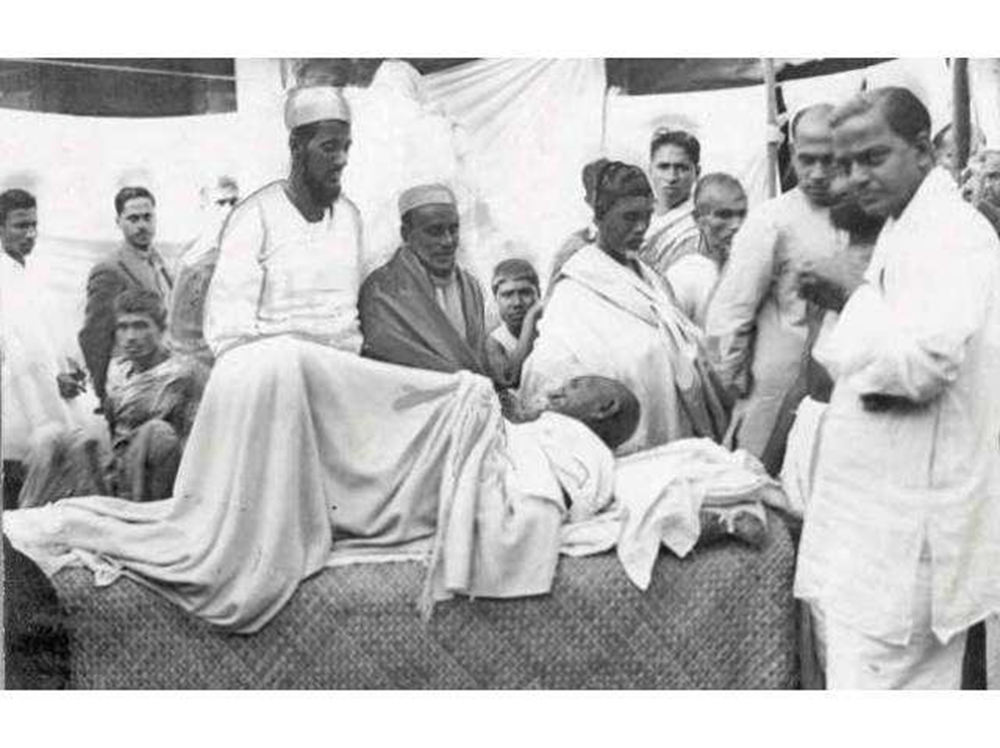- Courses
- GS Full Course 1 Year
- GS Full Course 2 Year
- GS Full Course 3 Year
- GS Full Course Till Selection
- Online Program
- GS Recorded Course
- NCERT (Recorded 500+ Hours)
- Polity Recorded Course
- Geography Recorded Course
- Economy Recorded Course
- AMAC Recorded Course
- Modern India, Post Independence & World History
- Environment Recoded Course
- Governance Recoded Course
- Science & Tech. Recoded Course
- International Relations and Internal Security Recorded Course
- Disaster Management Module Course
- Ethics Recoded Course
- Essay Recoded Course
- Current Affairs Recoded Course
- CSAT
- 5 LAYERED ARJUNA Mentorship
- Public Administration Optional
- ABOUT US
- OUR TOPPERS
- TEST SERIES
- FREE STUDY MATERIAL
- VIDEOS
- CONTACT US
On the Ethics of Hunger Strikes as a Mode of Protest
On the Ethics of Hunger Strikes as a Mode of Protest

Hunger strikes are in the news because they bring up hard moral questions. Like, should we give medicine to someone on strike if they don't want it? Or is force-feeding okay? Recent events make people talk about these things again.
What Are Hunger Strikes?
A hunger strike is when someone stops eating, and sometimes drinking water, to make others listen and change things. People usually do this when other ways to protest don't work.
Historical Examples
Ancient Practices:
- In old Ireland, people did a "troscad" (fast) to shame creditors and protest debts they couldn't pay.
- In ancient Kashmir, people went on hunger strikes against bad rules or taxes made by kings.
Modern Development:
- 1870s: Russian political prisoners protesting prison conditions
- 1917-1920: Irish Republicans (e.g., Thomas Ashe, Terence MacSwiney)
- Indian Freedom Fighters:
- Mahatma Gandhi: Used fasts as a "weapon in the armoury of Satyagraha"
- Jatin Das (1929): 63-day hunger strike
- Bhagat Singh and Batukeshwar Dutt: Protested poor prison conditions
Post-Independence India:
- Potti Sriramulu (1952): Led to the formation of Andhra Pradesh
- Irom Sharmila (2000-2016): 16-year protest against AFSPA in Manipur
- Anna Hazare (2011): Anti-corruption law demand
Recent Examples:
- Manoj Jarange-Patil: Demanding reservations for the Maratha community
- Sonam Wangchuk: 21-day strike for Constitutional safeguards in Ladakh
- Khader Adnan: Palestinian prisoner who died after an 87-day hunger strike in 2023
Ethical Arguments
|
Arguments in Favor of Hunger Strikes: |
Arguments Against Hunger Strikes: |
|
|
Significant Views and Legal Framework
Notable Perspectives:
- Mahatma Gandhi:
- Preferred term "fasting" over "hunger strike"
- Viewed as a means to reform those in power by appealing to conscience
- Believed it should be used against a "lover" for reform, not to extort rights
- Dr. B.R. Ambedkar:
- Criticized hunger strikes as "unconstitutional methods"
- Advocated for constructive approaches within legal frameworks
Legal Considerations:
- Geneva Convention:
- Sets standards for treating wounded combatants
- Application to hunger strikers is unclear
- Indian Context:
- Madras High Court: Hunger strikes do not constitute attempt to suicide under Section 309 of IPC
- Section 224 of BNS: Punishes suicide attempts to force or stop public servants from doing their job
Ethical Way Forward:
- Clear and Specific Demands:
- Ensure demands are articulate, specific, and achievable
- Justifies the extreme measure of a hunger strike
- Independent Mediation:
- Involve neutral third-party mediators
- Facilitate dialogue between protesters and authorities
- Healthcare Ethics Guidelines:
- Establish clear guidelines for medical professionals
- Balance duty to preserve life with respect for patient autonomy
- Public Awareness and Education:
- Educate society about ethical implications of hunger strikes
- Promote understanding of consequences and alternatives
- Legal Framework Development:
- Consider specific laws to regulate hunger strikes
- Include provisions for mediation, ethical review, and rights protection
- Positive Incentives:
- Promote alternatives to hunger strikes
- Support mediation services and platforms for constructive engagement
Conclusion:
Hunger strikes remain a complex and ethically challenging form of protest. While they can be powerful tools for drawing attention to injustices, they also raise serious concerns about self-harm, coercion, and the broader impact on society. Moving forward, a balanced approach that respects individual autonomy while promoting alternative forms of peaceful protest and dialogue may help address the ethical dilemmas posed by hunger strikes.
Must Check: Best IAS Coaching In Delhi
UPSC Prelims Result 2024 Out: Expected Cut Off & Other Details, UPSC Prelims 2024 Answer with Explanation, Daily Prelims Quiz, Daily Current Affairs, MONTHLY CURRENT AFFAIRS TOTAL (CAT) MAGAZINE, Best IAS Coaching Institute in Karol Bagh, Best IAS Coaching Institute in Delhi, Daily Mains Question Answer Practice, ENSURE IAS UPSC Toppers, UPSC Toppers Marksheet, Previous Year Interview Questions, UPSC Syllabus




